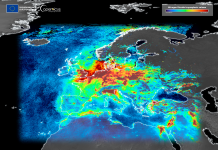Head of Policy Affairs at Science Europe, Stephan Kuster, tells Open Access Government how open access promotes progress, helps society and benefits the taxpayer
We live in a knowledge-based society in which culture, wellbeing, innovation, prosperity and social cohesion depend on the discovery, production and multiple uses of knowledge. Knowledge- based societies are highly complex ecosystems with various interconnected and interdependent parts, each with its own role and contribution to society.
The role of scientific research is to fuel the ecosystem with a steady supply of new knowledge, as well as insights into ways of applying it for different purposes. The contributions of research to society – and in particular publicly-funded fundamental research – are too numerous and diverse to list exhaustively, but they range from the discovery of new fundamental laws that govern our universe, to solutions to societal challenges, contributions to education, and the training of the highly-skilled workforce our complex societies require.
Open access is a key element of open science
Knowledge produced through scientific research has to circulate freely in order to make these societal contributions. If it is locked up behind restricted-access rules it cannot make its contribution to society as fully and as quickly as knowledge that is free to circulate and interact, and which, most importantly, is accessible to all. This is one of the central premises of open science, which aims to change how the scientific research system produces knowledge, and how knowledge is disseminated and used.
One of the key elements of open science is open access to research publications. Open access, as defined in the Berlin Declaration, means unrestricted online access to peer-reviewed scholarly research papers for reading and productive re-use. It is not impeded by any financial, organisational, legal, or technical barriers. Ideally, the only restriction on use is an obligation to attribute the work to the original author.
Open access is based on the principle that publicly funded research results should be publicly available, and not locked away from those who paid for it. An increasing portion of scientific literature produced today is accessible to everyone because of open access. Many research communities have long adopted open access publishing models and a recent survey of Science Europe Member Organisations (who represent a significant portion of public research organisations in Europe) showed that a large majority of research performing organisations and research funders have policies, guidelines and mandates which require and help researchers to publish in open access form. Additionally, Horizon 2020, the largest single research programme in the world, introduced an open access mandate in 2014 and today many publishers offer open access options in their journals.
Open access initiatives shake up the system
However, much still needs to be done in order to reap the benefits of open access and open science. Firstly, too much public funding is still tied up in old-fashioned subscription deals with publishers which limit access to research results to those who can afford the expensive subscriptions or are willing to pay for individual articles. Initiatives such as OA2020 are shaking up the system and offer a large scale transformation from subscription models to open access.
Transparency of publishing costs and services offered by publishers is another important element needed to achieve the transition to open access. Knowing exactly how much money the taxpayer is paying, and for what services, is essential in order to determine the economic value and also the cost of open access.
While progress has been made, some aspects, which remain critical for the success of open science and open access, are only now being tackled. For example, changing the rewards system is a very difficult but necessary step towards solving some of the issues faced by researchers today. As long as researchers are rewarded on the basis of the number of articles published in highly reputable journals, they will have strong incentives to publish only in these journals, even when they do not offer an open access option. It is essential that institutions that structure the science system (universities, research funders and research performers) change the way that they measure and reward researcher performance. Only then will open science and open access, have its full impact.
Despite all the progress made in the transition to open access, the transformation is not yet complete. National, as well as European-level research programmes, funders, research organisations, publishers and policy makers, need to act decisively to achieve it. The open access mandate in Horizon 2020 and the target set for open access as the default publication mode by 2020 by the Council Conclusions of the Council of the EU in May 2016 are very encouraging and highly appreciated steps in helping research make its full contribution to society.
Stephan Kuster
Head of Policy Affairs











